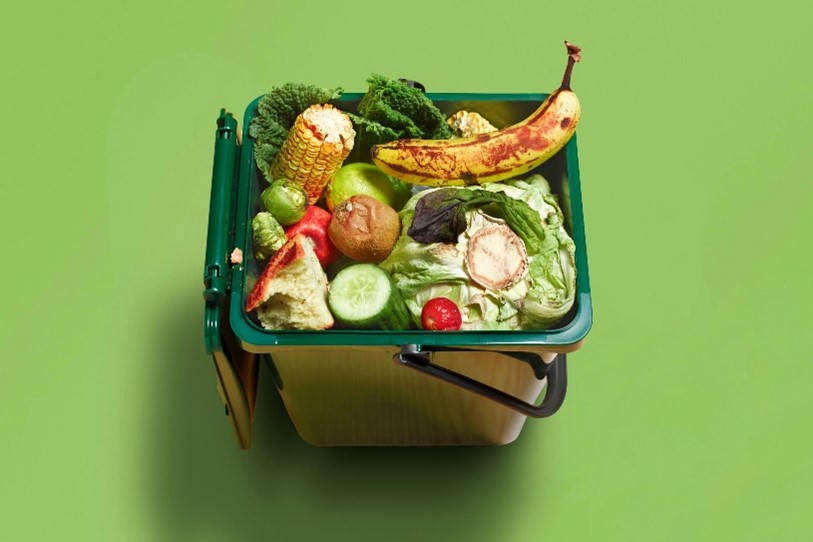9.5 million tonnes of food is thrown away and wasted annually in the UK despite 8.4 million people in the country being recognized as living in food poverty. And with the UK producing the highest amount of food waste in Europe alone, it’s clear that as a nation we need to make changes to how we dispose of food.
Furthermore, recent research from the Love Food Hate Waste campaign, created by the international climate action charity WRAP, has revealed that 70% of food waste comes directly from our own homes in the UK, negatively impacting the environment and contributing to climate change.
What’s more, amidst the cost of living crisis, the average UK family could save around £720 per year by saving food that has been unnecessarily wasted and placed in the bin!
The 26th of April serves as Stop Food Waste Day, which encourages us to make the most of the food we have in our homes and to make small but impactful changes to minimize food waste to care for our planet. 36 million tonnes of greenhouse gas emissions could be prevented by saving food from our bins, by saving the emissions created from needing to produce the food in the first place. So, how can we tackle this issue, and make changes that will make a difference?
Here, Holly Jones, Crop Association Executive at the British Growers Association who champion the industry campaign Yes Peas!, which is dedicated to championing the humble pea, shares her four top tips on how you can limit food waste in your own home this Stop Food Waste Day, alongside making your food budget stretch further amidst the ongoing cost of living crisis.
- Your freezer is your best friend
There is little to no food that you can’t pop in the freezer, and there are a wide variety of surprising foods that you can freeze, such as fresh herbs, ripe bananas, and even cooked rice!
But aside from freezing any fresh food, opting to buy frozen food over fresh in the first place provides the ultimate convenience as your food is already prepped and ready to go, meaning you can cook up a storm and use exactly what you need, leading to minimal food wastage.
Vegetables like frozen peas require no pre-cooking, you can simply add them into your recipe after giving them a quick steam, with zero food wastage. Plus, the majority of frozen foods, such as peas, are filled with nutrients which are locked in as soon as the food enters the freezing process, retaining its freshness and high product quality.
If you’re short of space, ensure your freezer is organized to make it easier to navigate and maximize the amount of food you can store in it. Try popping your ingredients in a reusable food bag and let it freeze laying flat for a while, then once set you can move it into a freezer bin where all of your food can be stored.
- Create a realistic meal plan
By planning and creating a flexible and realistic meal plan, you’ll be doing your bit to fight food waste, making the most of the food you’ve purchased to ensure it’s all being used.
Simply create an idea of what meals you would like to eat throughout the week, planning around real life to know exactly how many portions you’ll need to make, and prepare an itemized shopping list detailing the exact ingredients you require. Plus, if you cook some portions in advance, you’ll have minimal half-used ingredients left over, limiting the amount of waste required.
- Take a snap of your fridge ahead of your weekly food shop
Nothing beats the sight of a stocked-up fridge, and we’re all guilty of heading to our local supermarket, purchasing lots of food and eventually having to throw it away as it’s passed its expiry date.
Take a few moments to consider what you actually need before you visit the supermarket, and jot down what food you already have in. If you’re short of time, simply take a picture of your fridge to remind you of the food you have at home. By ensuring you only purchase what you need, you’ll be saving those well-earned pennies, as well as limiting the amount of food you have to dispose of.
- Utilise your veggie ‘scraps’
When cooking, many of us tend to throw away ‘scraps’ from vegetables such as leek tops, potato peelings and kale stems, without realizing that we can utilize these in a wide range of recipes. To minimize your food wastage and make the most of your vegetable scraps, consider keeping a scrap bag in the freezer to create a delicious homemade vegetable stock -aim for three or four cups of scraps and simply simmer on the stovetop with water.
Or why not try using ingredients that have absolutely no wastage at all? Compared with lots of their vegetable counterparts, peas are one of the most environmentally friendly crops, as the process of growing and harvesting peas avoids any food waste. When the peas are harvested, they are podded in the field, and all of the pod and vine waste is recycled back to enrich the soil.
For recipe inspiration and further information about the Yes Peas campaign, please visit www.peas.org.
